There are two good reasons to go to El Tupinamba: The tapas and the tunes. My favorite tapas are the croquetas, melt in your mouth Serrano ham and bechamel sauce, piled like glistening nuggets of gold in their silver rack.
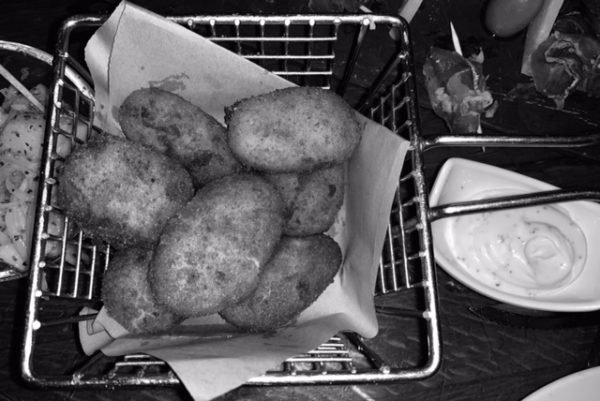
My favorite tunes are those strummed and picked by Woody Price, each and every Friday night.
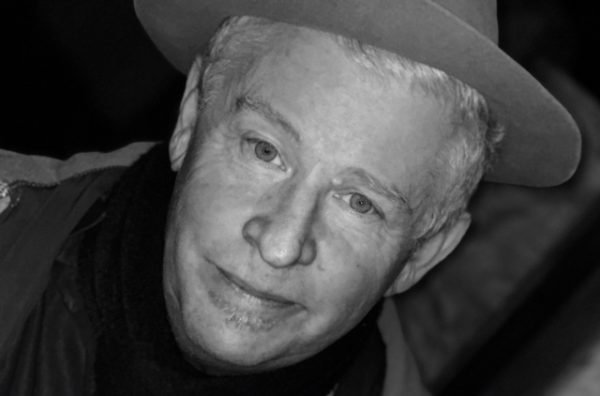
What I like about Woody and his tunes are they’re my tunes, tunes from my pimpled and pudgy adolescence, tunes from when I first had the courage to ask a woman to waltz, spread my right hand wide in the small of her back, wrapped my left hand a little tighter around her right.
Though Woody Price is as close to my kids’ age as mine, we share a similar joy for rock and roll, circa 1955 to 1965.
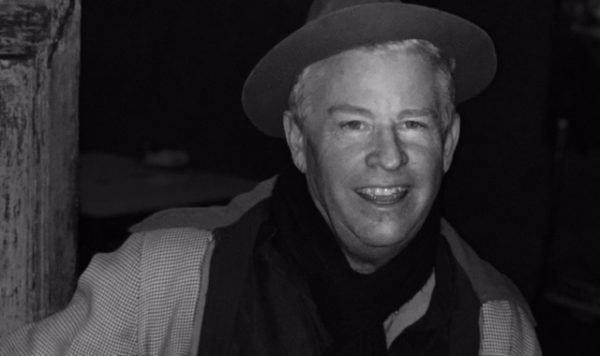
“I was born in ’57”, Woody told me, “so a lot of that love was passed down from my older brothers and sisters. They bought all the hits of the day.”
“My Dad was an audiophile. He had ten thousand 78s, four thousand LPs. He guested on a local radio show, played nothing but swing, big band, jazz.”
“I was born in Michigan, the Grand Rapids area; grew up in Niles down by the Indiana border. A lot of my early influences had some local connection…MC5, The Stooges, George Clinton, Parliament and Funkadelic, Grand Funk Railroad, Bob Seger, Ted Nugent…but as I got older I had this deeper and deeper appreciation of the earlier stuff, the roots, the beginnings of rock and roll.”
As Woody and I sat in “El Tupi” last week, Aretha serenading us
on the sound system, Woody anticipating his first set with The Roadrunners, we talked about five songs that he felt shaped rock and roll, five songs that I hoped he’d be performing that evening. I thought I would share what he and I said about those songs.

Honky Tonk, Part Two. Bill Doggett. 1956.
“To me, things all started with Honky Tonk”, said Woody. “I learned that tune directly from Clifford Scott, the original sax player, on a road trip to San Antonio. He said ‘Boys, I’m going to teach you how to play Honky Tonk the right way’. We listened and we learned.”
Bill Doggett went back to way before rock and roll. He was the keyboard player and arranger for The Inkspots. I give him credit for introducing the churchy sound of the Hammond organ to rock. And I’d never heard a sax wail like Clifford Scott’s or a guitar ring like Billy Butler’s until I heard Honky Tonk.

Rumble. Link Wray & His Wray Men. 1958.
There are singers that play guitar. There are guitarists that sing. Woody Price comes from the second school. The school that gave us Eric Clapton, Jimi Hendrix, Mark Knopfler. But the songs and performers we talked about all predated them. All of the songs were instrumentals, a genre that’s almost lost and forgotten in today’s music scene.
“One of the simplest and one of the greatest was Rumble. It had distortion and feedback. Things that rock had never heard before”, said Woody. That ‘power chord’ that Link Wray introduced was still used in the eighties by punk and garage bands.”
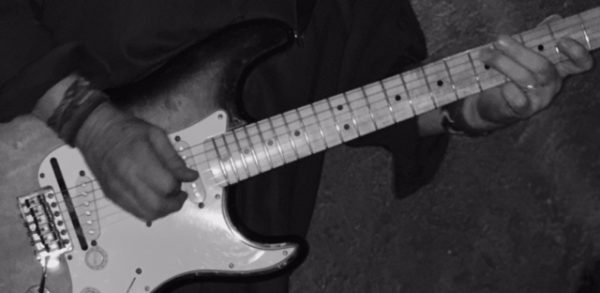
As Woody picked up his Fender Stratocaster and gave it a Link Wray style strum, I remembered the 45 of Rumble was a must have. It was banned in Boston because “it might incite gang violence”. I remember it inciting me to practice the latest dance craze, The Stroll, in front of my mother’s full length mirror.
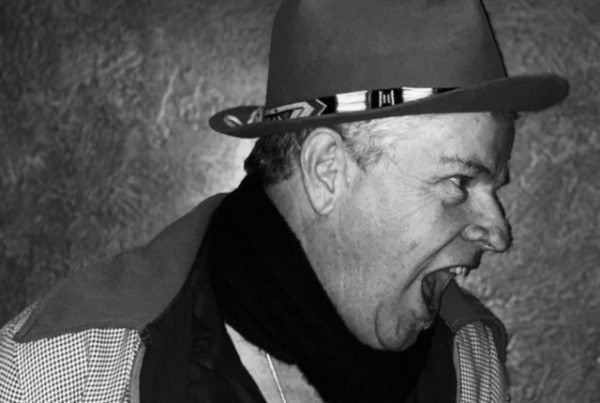
Rebel Rouser. Duane Eddy. 1958.
Some guys talk about women. Some guys talk about sports. Some guys talk about politics. Some guys talk about beer. Woody Price talks about guitars. Not only by name…Gibson, National, Guild, Martin, Fender…but by their vintage year…using words like “she’s a ’58 Les Paul”.
“That was a Gretsch”, said Woody, referring to the Chet Atkins style guitar that Duane Eddy played. “The twang’s the thang, they’d say about Duane Eddy. He had that style of playing the bass strings that added raunch to rock and roll.”
“That sound continued for decades. You’d hear it in country and western, rock and roll, TV themes, James Bond movies.”
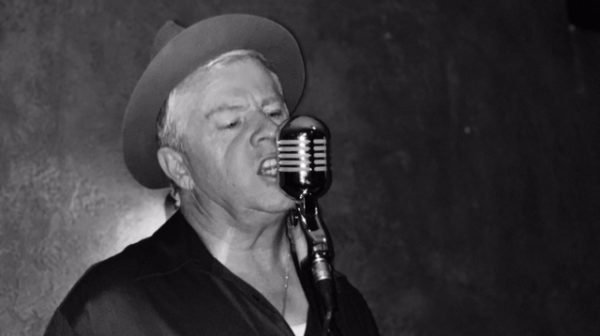
Sleepwalk. Santo and Johnny. 1959.
Santo Anthony Farina and John Steven Farina were brothers born in Brooklyn, New York. They only had one real hit but it is still fondly remembered by both Woody and I.
“It was the first steel in rock”, said Woody, referring to the guitar sound that, traditionally was the property of Hawaiian and country music.
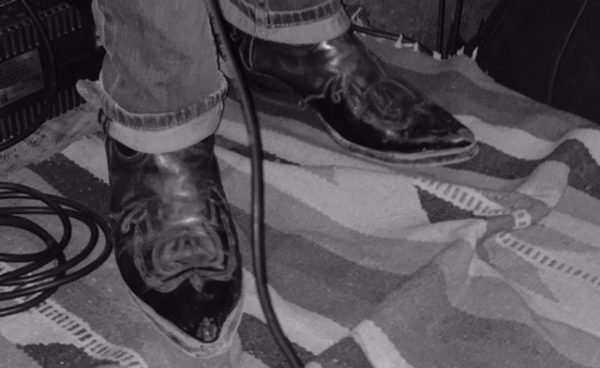
“Country was really important to me until I went to Austin, went to New Orleans, then I started to appreciate southern rock more, swamp rock, cajun and creole”, Woody continued.
I personally remembered Sleepwalk from dances in Roman Catholic church basements. “Better grab a gal quick, some guy would say. Father’s spinning Santo and Johnny next.”
Misirlou. Dick Dale. 1962.
“Dick Dale might not have invented surf music but he was the biggest daddy of them all. The Ventures did it. The Chantays did it. But I think he was the boss”, said Woody.
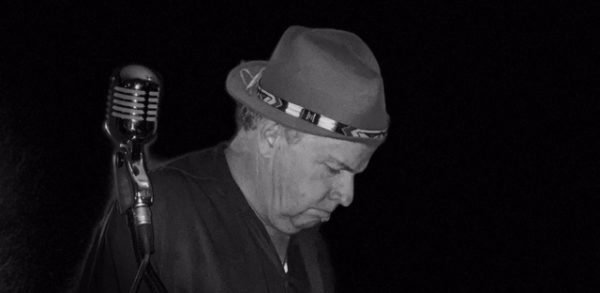
“You could take any old corny tune and surf it up with a little reverb and tremolo and people would be up dancing.”
I remembered dancing to Miserlou. Dick Dale’s guitar sounded like waves crashing against a rocky shore. It took me to Southern California for about two minutes and eighteen seconds. Loved Quentin Tarantino bringing it back in Pulp Fiction.
Bill Doggett, Link Wray, Duane Eddy, Santo and Johnny, Dick Dale. None of them lasted much longer than their first hit or two. Woody Price has been pickin’ and strummin’ for over forty years.
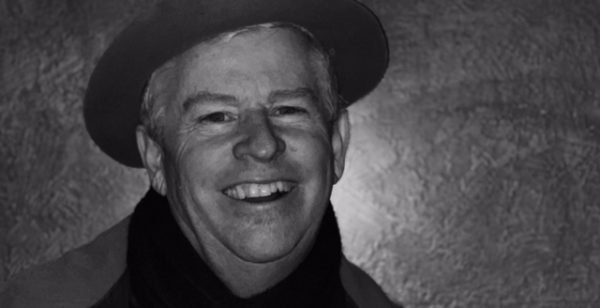
“I’ve always been a career musician. Always have, always will be”, said Woody, as his drummer was setting up beside El Tupinamba’s tiny stage. “Drove cab for ten years…that led to my own limousine business…but you’ve got to pay the bills…even then I still considered myself a full-time musician. I love music. I love playing. Love all that old-time music we’ve been talking about. Always will.”
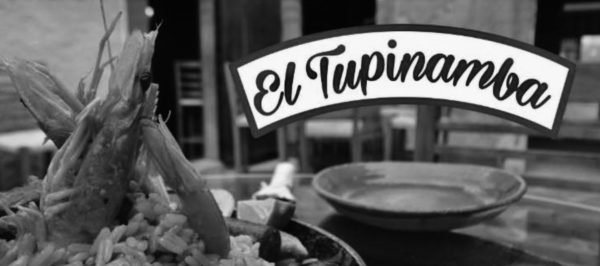
Woody Price and The Roadrunners play at El Tupinamba every Friday night. The first set starts when the sign says it does, at 8:30 pm. There’s no cover but there is a tip bucket. El Tupinamba is located at Zacateros #45 in San Miguel de Allende, Mexico.

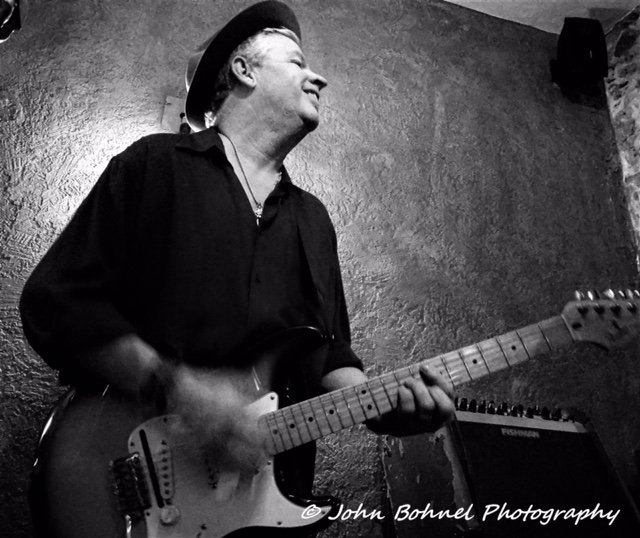
Wonderful article Glenn. I could practically hear the guitars twang and see the dancing in your stories. Well done.
Those songs are a little before my teen years, however the beauty of blues/rock historian Woody and his music add up to a rare find. He’s a special kind of a person…..Well written, I guess I have to try the food.
Woody’s my main man…good to see you’ve given a great and well-deserved plug!
Glad Woody gets a good plug…my main man….he deserves it.
Gracias a Todos !
Heard Dick Dale and his surf guitar in San Francisco a few years back at Slim’s the best club in San Fran….he was as good as ever!
Great article. Great guitar player!
Great article! Woody’s a wonder!
Thank you Don Day! Our man WOODY is the hardest working musician and bandleader in SMA. We’ve seen him not only with Los Roadrunners, but also solo, with his jazz band Seis Manos, his country band, Drive, and in the iconic SMA band, the SPYBOYZ, with Jesse Moore, Doug Robinson, and Rick Shlosser. He also produced 2 CD by his band, Hillbilly Savants. He is one of the treasures of San Miguel de Allende and a great friend.